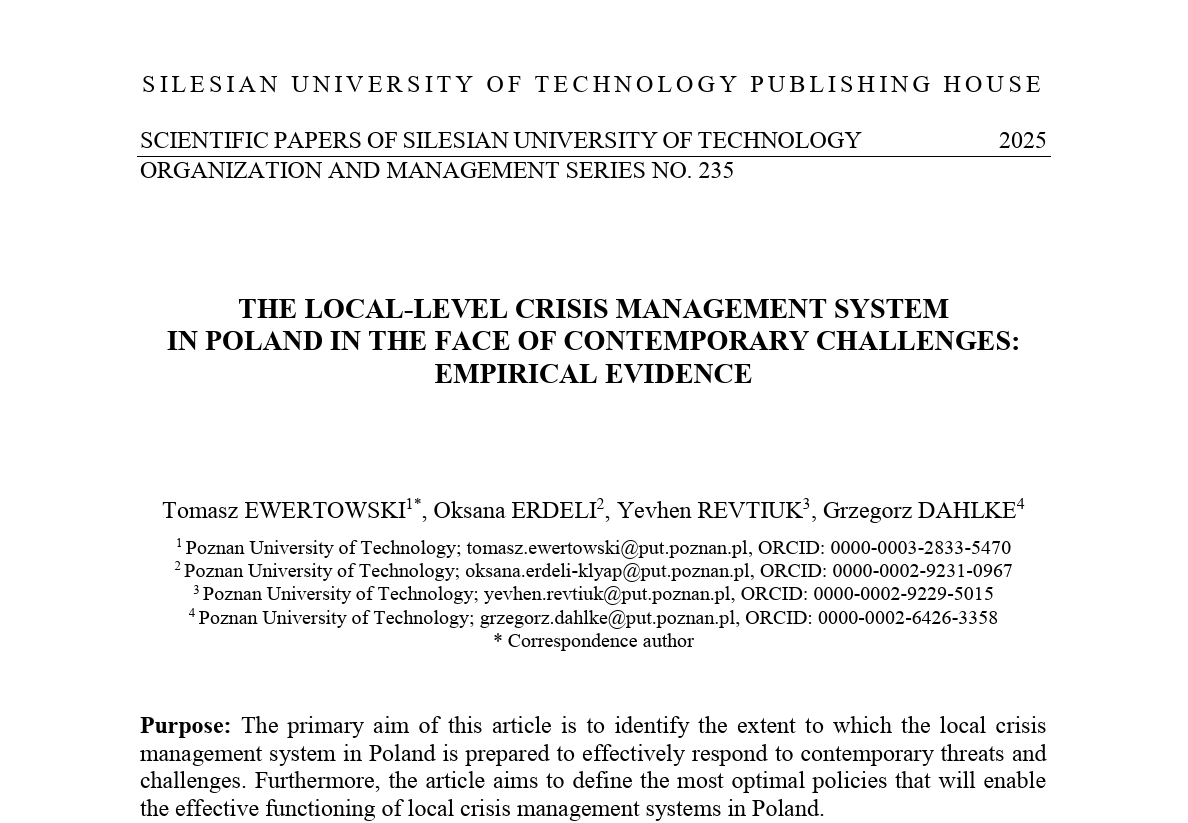
Ewertowski, T., Erdeli, O., Revtiuk, Y., Dahlke, G. (2025). The local-level crisis management system in Poland in the face of contemporary chalanges: Empirical evidence.

CECRS Project Recognized in the NATO SPS Annual Report 2024
We are pleased to announce that project G6119 – “Increasing the Capacity of Local Communities to Counteract Crisis Situations”, carried out at the Faculty of Management Engineering in cooperation with partners from Ukraine, has been included in the latest NATO Science for Peace and Security (SPS) Programme – Annual Report 2024.
Being featured in the NATO SPS Programme report is a significant distinction and confirms the importance and quality of the research and activities conducted within CECRS in the field of public and social security. It also highlights the growing role of Polish-Ukrainian cooperation in strengthening security and social resilience.
The aim of the project is to enhance the ability of local communities to effectively respond to crisis situations by strengthening their resilience, building trust in local authorities’ actions, and improving crisis-management systems.
As part of the initiative, the following activities are being carried out:
- specialist training to increase residents’ preparedness for responding to threats,
- research on the crisis-management capabilities of local communities,
- development of an interactive handbook, which will soon be made publicly available.
The NATO Science for Peace and Security (SPS) Programme supports long-term partnerships between allied nations and NATO partners, advancing scientific knowledge as well as collective-security capabilities through research and development cooperation. In 2024, the SPS Programme received 302 project proposals from more than 100 universities across over 40 countries. The supported initiatives have delivered practical solutions in numerous security-related areas.
We would like to thank all individuals involved in the project for their professionalism and dedication, which made this recognition possible.
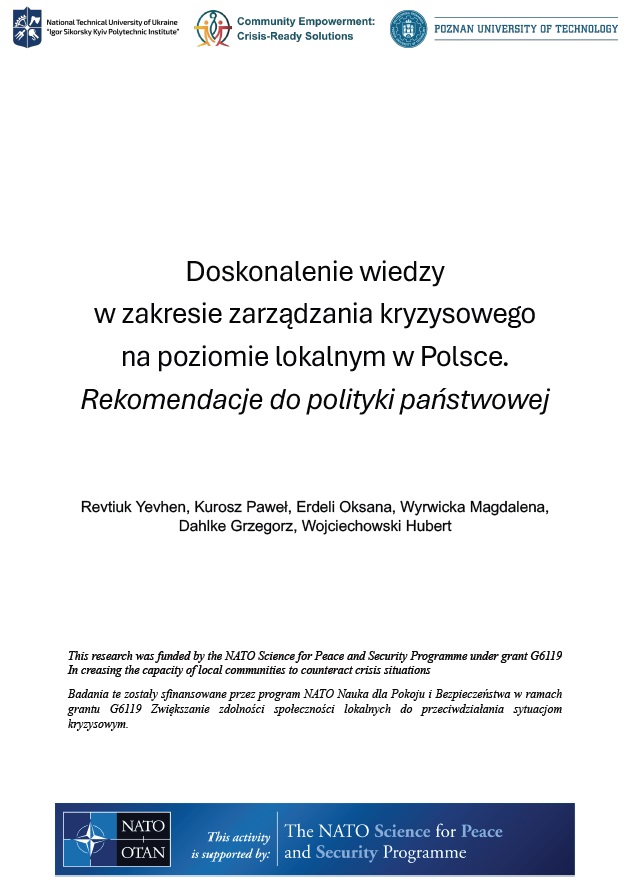
The presented document is the result of scientific research conducted as part of the international project "Community Empowerment: Crisis Ready Solutions," funded by the NATO SPS Program. The research focused on identifying key challenges related to crisis management at the local level in Poland.
By conducting interviews with academics and practitioners, the authors identified insufficient knowledge and skills among residents and local authorities in preparing for and managing crisis situations as the main problem. In response to this issue, the document proposes a series of public policy changes aimed at enhancing the preparedness of local communities.
The proposed changes focus on two main areas: 1) increasing the knowledge and engagement of residents, and 2) improving the qualifications of local authority representatives. The authors suggest various policy options, ranging from maintaining the status quo to introducing mandatory training for specific social groups.
Based on the analysis conducted, the authors recommend implementing mandatory training for residents and formulating detailed qualification requirements for employees of crisis management units. The document also provides specific proposals for implementing these changes.
Keywords: crisis management, public policy, local community, Poland, crisis preparedness, education, training, qualifications.
Link:
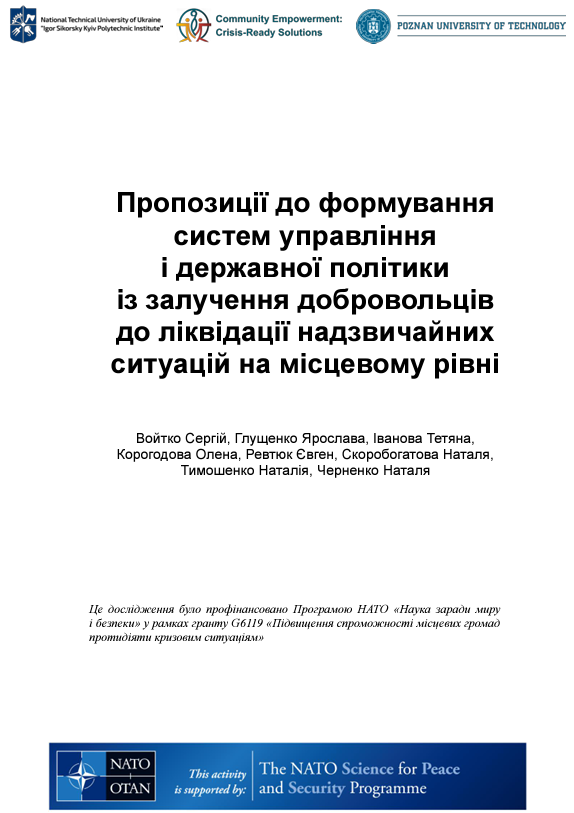
The project's Policy Paper aims to develop a policy for effective interaction between local self-government bodies and the population, whose representatives include volunteers who became active during the legal regime of martial law. The document discloses the methodology for conducting the study, identifies key research questions, analyzes the system of anti-crisis management at the local level in Ukraine, identifies the main problems of developing anti-crisis management, and proposes possible policy options. The document discloses and justifies the policy choice, considering the current situation in Ukraine. The Policy Paper also contains conclusions and a bibliography.
According to the code system prepared by the project's research team, Ukraine's regulatory and legal framework was analyzed in terms of the theory of anti-crisis management at the local level. The results of the Policy Paper are based on six semi-structured in-depth interviews conducted with leading Ukrainian experts from among scientists and practitioners.
The document reveals the stages of development of the anti-crisis management system at the local level. It summarizes the features of activities in the mode of daily operation, increased level of readiness, emergency situation (ES), and state of emergency at the pre-crisis, crisis, and post-crisis stages.
The Policy Paper identifies problems that, according to respondents, require improvement in the next cycle of policy implementation. Alternative policy choices were analyzed according to the following criteria: policy implementation time, policy effectiveness, policy implementation cost, and policy implementation realism. The document develops specific steps for implementing the proposed policy.
Keywords: anti-crisis management, emergencies, crises, local self-government, local authorities, territorial communities, voluntary associations, volunteers.
Link:
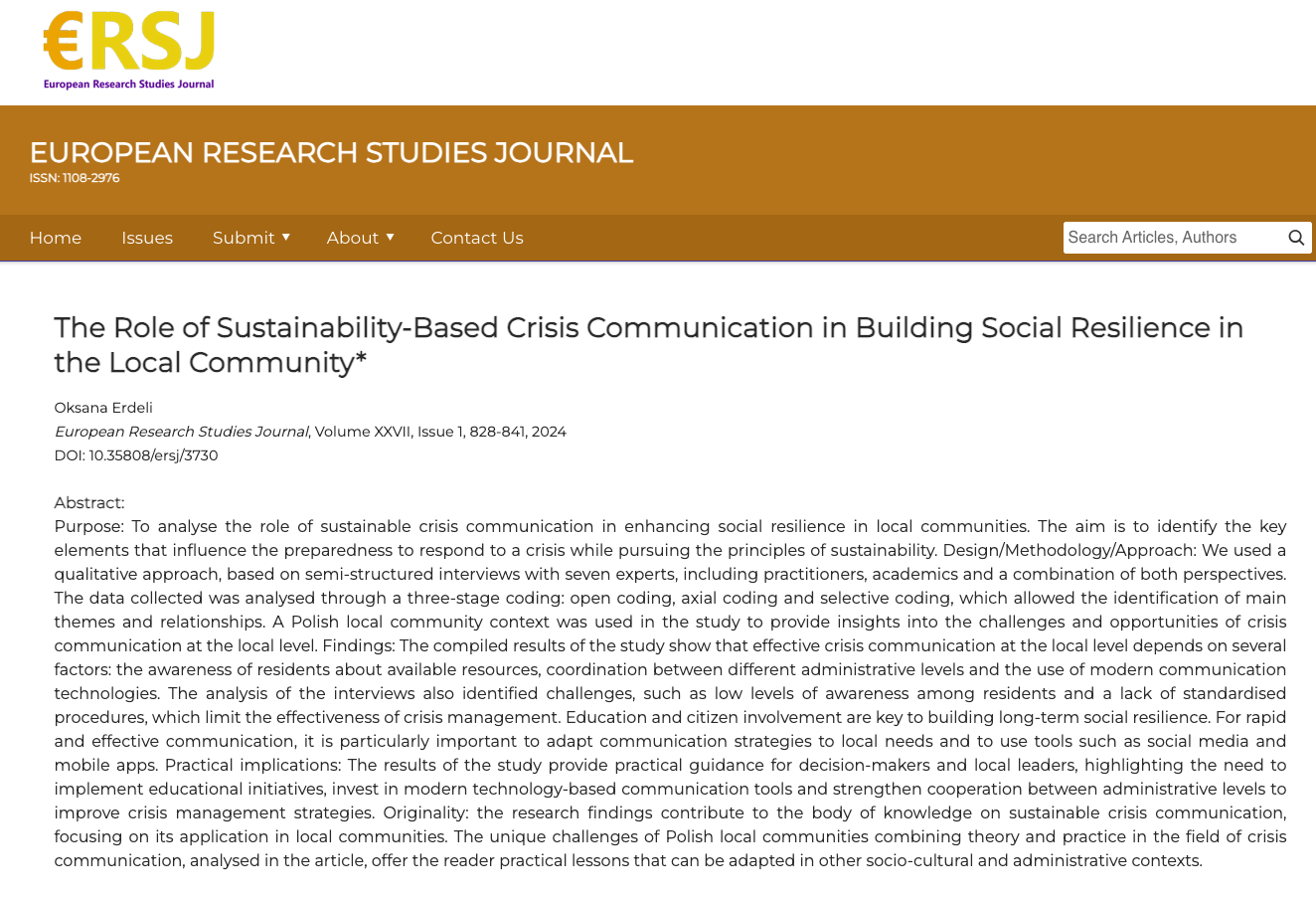
Erdeli, O. (2024). The Role of Sustainability-Based Crisis Communication in Building Social Resilience in the Local Community.
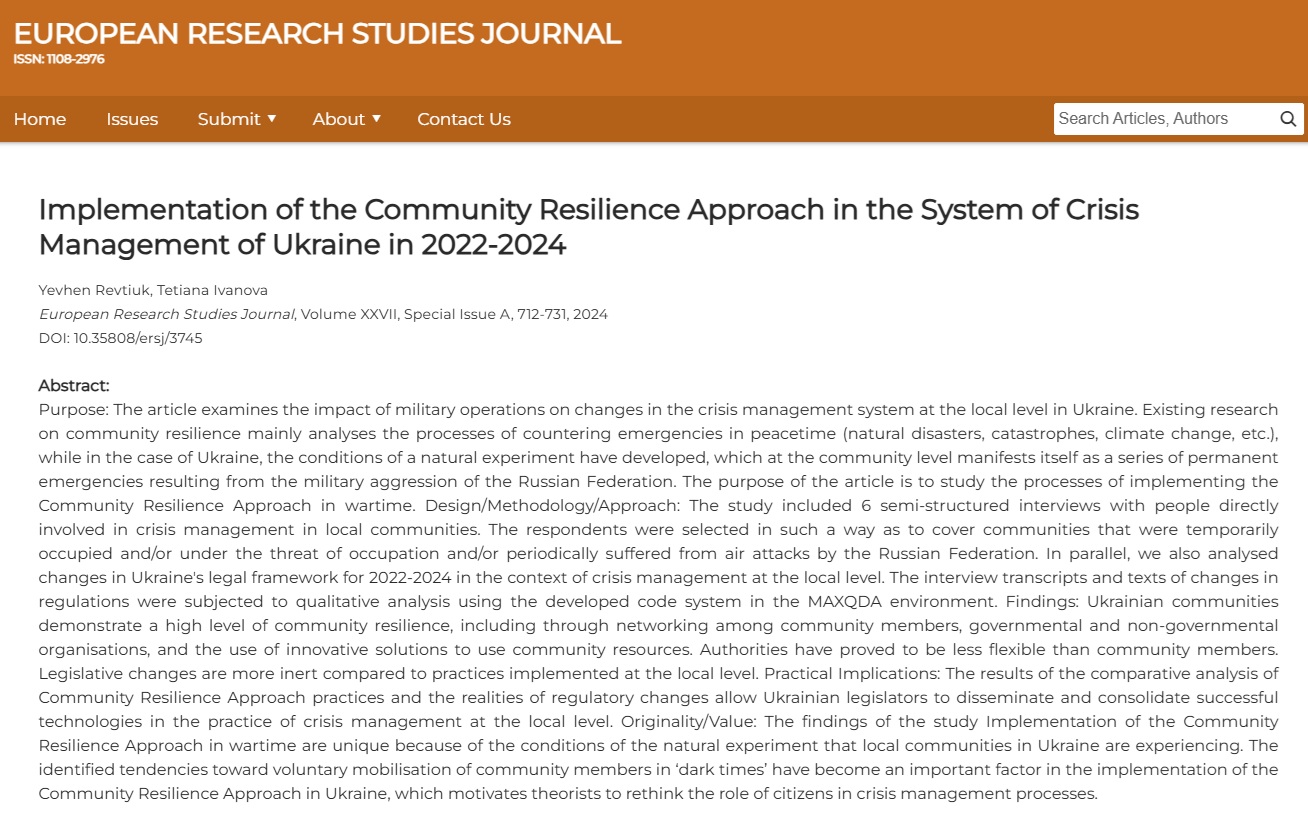
Revtiuk Y., Ivanova T. (2024). Implementation of the Community Resilience Approach in the System of Crisis Management of Ukraine in 2022-2024, European Research Studies Journal, Volume XXVII, Special Issue A, pp. 712-731.



